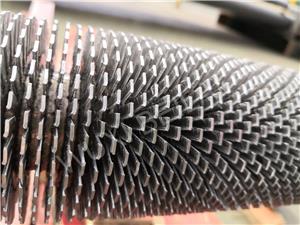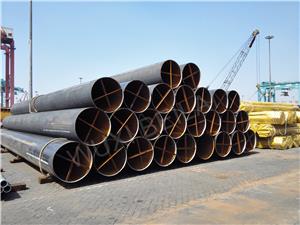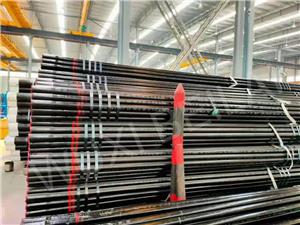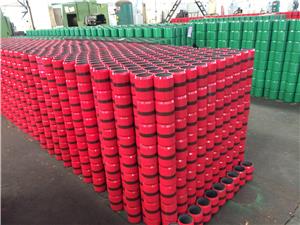How to choose the material of finned tube?
As a highly efficient heat exchange element, the performance and life of finned tubes largely depend on the characteristics of the selected materials. Correct material selection can not only significantly improve the thermal conductivity of finned tubes, but also enhance its corrosion resistance and structural strength. This article will introduce in detail the material selection of finned tubes in different application scenarios, including the selection of base materials and fin materials, and discuss its advantages and scope of application in practical applications.
1. Basic material selection
carbon steel
Features: Carbon steel is a common metal material with good mechanical strength and low cost, and is easy to process and weld.
Application: Suitable for general industrial heat exchangers and boilers, especially in medium and low temperature, low corrosion environments.
Advantages: economical, easy to process into various shapes, and has good performance in medium and low temperature environments.
Stainless steel
Features: Stainless steel can work for a long time in high temperature and corrosive environments due to its excellent corrosion resistance and high temperature strength.
Application: Suitable for food processing, chemical industry, pharmaceutical and other industries that require high cleanliness and high corrosion resistance.
Advantages: Strong corrosion resistance, suitable for harsh environmental conditions, ensuring long-term stable operation of the equipment.
copper
Features: Copper has excellent thermal conductivity and corrosion resistance, especially corrosion resistance to water and moisture.
Application: Widely used in air conditioners, refrigeration equipment, water heaters and other equipment that require efficient heat conduction.
Advantages: excellent thermal conductivity and strong corrosion resistance, especially suitable for heat exchange in humid environments.
aluminum
Features: Aluminum is lightweight, has good thermal conductivity, is low cost, and is easy to process into various shapes.
Application: Commonly used in equipment that require lightweighting, such as air conditioners, condensers, and automobile radiators.
Advantages: light weight, good thermal conductivity, low cost, suitable for large-scale industrial production.
2. Fin material selection
aluminum fins
Features: Aluminum fins are lightweight, have good thermal conductivity, are easy to process into various shapes, and are low cost.
Application: Widely used in air conditioners, refrigeration equipment, automobile radiators, etc.
Advantages: economical, good thermal conductivity, light weight, easy to mass produce.
copper fins
Features: Copper fins have extremely high thermal conductivity and good corrosion resistance, especially against water and moisture.
Application: Commonly used in high-efficiency refrigeration equipment, water heaters and some special industrial equipment.
Advantages: Excellent thermal conductivity, good corrosion resistance, suitable for equipment requiring efficient heat conduction.
stainless steel fins
Features: Stainless steel fins are resistant to high temperatures and have excellent corrosion resistance, especially suitable for harsh environments.
Application: Widely used in chemical, pharmaceutical, food processing and other equipment that require high cleanliness and high corrosion resistance.
Advantages: Strong corrosion resistance, suitable for high temperatures and harsh environmental conditions, ensuring stable operation of equipment.
Galvanized steel fins
Features: A layer of zinc is plated on the surface of the steel fins to improve its corrosion resistance.
Application: Suitable for highly corrosive environments, such as marine engineering, chemical plants, etc.
Advantages: Improved corrosion resistance of steel fins, extended service life, suitable for highly corrosive working environments.
3. Special material selection
Titanium alloy
Features: Titanium alloy has extremely high corrosion resistance and high strength, and is suitable for marine environments and highly corrosive chemical environments.
Application: Mostly used in marine engineering, chemical equipment and some special industrial equipment.
Advantages: extremely corrosion-resistant, high strength, light weight, suitable for use in extreme environments.
Nickel-based alloy
Features: Nickel-based alloys are resistant to high temperatures and corrosion, and are suitable for high temperature and corrosive environments.
Application: Used in nuclear power equipment, aerospace equipment and some high-temperature chemical equipment.
Advantages: Excellent performance in high temperature and corrosive environments, ensuring stable operation of equipment under extreme conditions.




